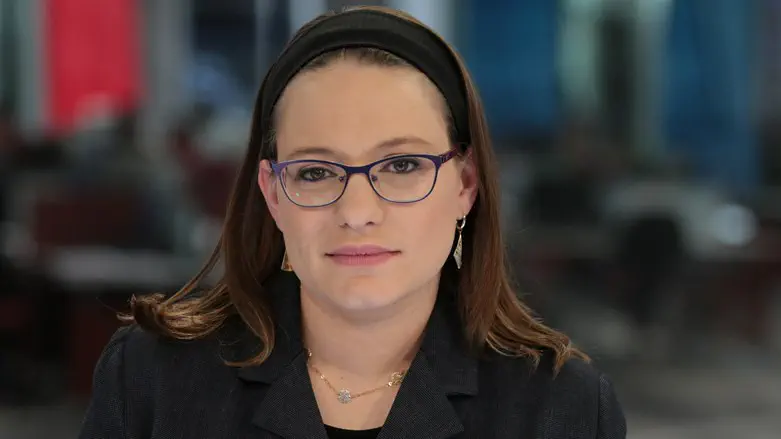
* Translation by Yehoshua Siskin
During the time we were in the United States, I saw how much American Jews are attached to Israel. They dedicate prayers, psalms, and good deeds to us. Time and again they announce that a prayer is "for the Land of Israel" or “for someone in Israel". Here is an opportunity to feel their pulse for a moment, to attach ourselves to them.
Liel Namdar, a 15-year-old girl from New York, was killed in a traffic accident on Saturday night. The Five Towns and Great Neck communities are in mourning. (Larry Gordon's article in the 5 Towns Jewish Times can be seen here.) Liel was a friend of my daughter and they learned together in the TAG school. Liel was returning from New York after spending Shabbat with campers she knew from Sternberg summer camp when the car of a drunk driver, who was living illegally in the United States, crashed into the car in which she and her friends were riding.
Her funeral took place here in Jerusalem. The American community in Jerusalem came to Har Hamenuchot late at night in great numbers, including hundreds of teenage girls and boys who are here to study for the year.
Ever since the funeral, thousands of people began to perform wonderful deeds in her memory - from distributing Shabbat candles and challahs throughout New York City to holding large havadalah gatherings for passersby in Jewish neighborhoods.
Two stories about Liel accompany us this week. Both come from the last moments of her life:
* At the end of the gathering with her friends, before the girls got into the car, rain started to fall. All the girls went back indoors or covered themselves snugly in their coats. Only Liel pulled two friends outside and said to them: "Let's dance in the rain!". This was her last video, dancing in the rain with friends, joyful as always, making the most of the moment.
* In the last text that she sent, just seconds before the accident, she wrote to a friend as follows: "Could you remind me to say 'Shema Yisrael' this evening?". Her friends later said that Liel always remembered to say it. This was her way of reminding the friend to say the Shema without insulting her.
May Effi and Maya and Liel's siblings - Natalie, Emmanuel, and Yinon - be consoled from Jerusalem, with wishes for only good news to come.
Meir Banai: 5 years since his passing
Five years have passed since the death of Meir Banai, z"l, the singer and songwriter who was the first to infuse Jewish content and spirituality into Israeli pop music, a trend that continues and grows stronger every year.
Here are some quotes from interviews I was privileged to conduct with Meir over the years:
"I did not sleep before this interview. I hate this, it puts me under pressure. My profession is not suitable for me. I am not being self-effacing; it is truly a burden. But I cannot deny the fact that I have a talent and I must utilize it. I cannot tell it 'No.' I lose my shyness only when I am with my guitar. With her I feel protected."
"We are in an era when all the holy cows have been slaughtered. People say 'There is no God.' And I say that this is also good. Because if there is no God, if everything is permissible, it's also permissible to believe in God."
"When they ask me, 'Who's your rabbi?' I answer: 'Rebbe Nachman of Breslav.' He strokes you, hugs you, lifts you up gently. This is a difficult job, to be a servant of HaShem. And his advice helps. I feel he reassures me time and again: 'You are completely worthy.'"
"They asked me what happens when I make an album of prayer music, and I answered: All of us pray and that's good. Who doesn't say 'If only . . .' or 'I want . . . '? Every person prays. It opens the heart, it opens the soul."
"When I try to write about Judaism, it comes out kitschy. I have not yet succeeded but it's an interesting search. I will eventually find the words for which I have to wait. Meanwhile, I compose piyutim (spiritual poems). Rabbi Shalom Shabazi, Ibn Gabirol, Ibn Ezra evoke the sensations that I feel."
"Our teshuvah is not a revolution or a rebellion. We are returning to provinces where we have already been. Our faith has always been there."
